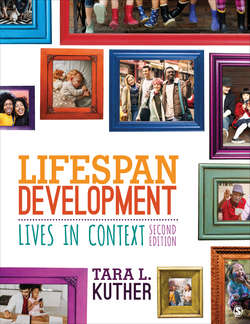Читать книгу Lifespan Development - Tara L. Kuther - Страница 284
На сайте Литреса книга снята с продажи.
Nativist Theory and Language Development
ОглавлениеNativist theorist Noam Chomsky (Chomsky, 1959, 2017) argued that language use comprises behavior that is too complex to be learned so early and quickly via conditioning alone. Chomsky noted that all young children grasp the essentials of grammar, the rules of language, at an early age and that the languages of the world have many similarities. The human brain thus has an innate capacity to learn language. Specifically, Chomsky believed that infants are born with a language acquisition device (LAD), an innate facilitator of language that permits infants to quickly and efficiently analyze everyday speech and determine its rules, regardless of whether their native language is English, German, Chinese, or Urdu (Yang, Crain, Berwick, Chomsky, & Bolhuis, 2017). The LAD has an innate storehouse of rules, universal grammar, that apply to all human languages. When infants hear language spoken, they naturally notice its linguistic properties, and they acquire the language. Language, therefore, is a biologically driven cognitive mechanism of brain development that is triggered by exposure to language (Friederici, 2017).
The nativist perspective can account for children’s unique utterances and the unusual grammatical mistakes they make in speaking because children are biologically primed to learn language and do not rely on learning. However, like learning theory, the nativist perspective offers an incomplete account of language development. Specifically, Chomsky’s nativist perspective does not explain the process of language development and how it occurs (Ibbotson & Tomasello, 2016). Researchers have not identified the language acquisition device or universal grammar that Chomsky thought underlies all languages. In addition, there are more individual differences in language learning and in languages than Chomsky proposed (Dąbrowska, 2015). Moreover, language does not emerge in a finished form. Instead, children learn to string words together over time based on their experiences as well on as trial and error (Tomasello, 2012). Finally, it appears that language learning does not occur as quickly or effortlessly as Chomsky described (Miller, 2016).
